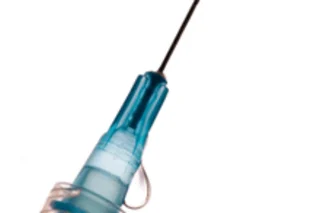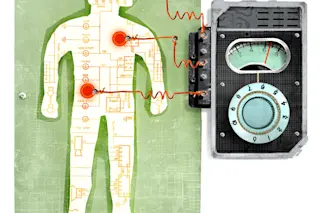As 80beats reported back in March, the World Anti-Doping Agency (WADA) has been experimenting with so-called biological passports to curb cheating in sports. Biological passports are electronic records for individual athletes that provide baseline measurements of substances in their blood and urine that officials can track to catch juiced athletes, since a sudden deviation from the baseline would suggest funny business. Now, the WADA has released a new set of guidelines to monitor athletes' blood profiles for evidence of performance enhancing substances.
The guidelines take effect immediately and provide advice to antidoping agencies on how to put programs in place to collect and store athletes’ blood samples and monitor them for any variations that could indicate doping—without an actual positive test [The New York Times]. The new guidelines are necessary to keep pace with increasingly sophisticated cheating techniques, such as hormone injections, self-blood transfusions, and potentially gene doping.
During the upcoming Vancouver Winter Olympic Games in February, laboratories will be asked to take blood samples according to the new guidelines. Officials say it's unlikely that these samples will be used to detect doping during these Winter Games, since earlier samples drawn under the same guidelines are needed for comparison. However, this could mark the beginning of a stricter, cleaner era of sports.
In the future when an athlete's biological passport gives doctors cause for suspicion, a positive test for a banned substance won't be necessary to take disciplinary action. The
WADA said its guidelines suggest there should be an unanimous agreement by three experts that a profile shows signs of prohibited substance use before proceedings against an athlete can be launched. Three experts should also agree that the athlete's explanation for the abnormalities don't hold before sanctions can be considered
[AP]
.
Related Content: 80beats: Doping Police Try Out “Biological Passports” for Athletes 80beats: Gene Therapy That Bulks up Muscles Raises Doping Concerns 80beats: Three Weeks Before the Olympics Begin, New Questions About Doping DISCOVER: Will Genetic Therapy Destroy Sports? explores the potential for genetic doping Image: iStockphoto
The new methods come after a study published in the British Journal of Sports Medicine indicated that testing for high levels of testosterone was ineffective, and called for tracking athletes' biological profiles over time.












